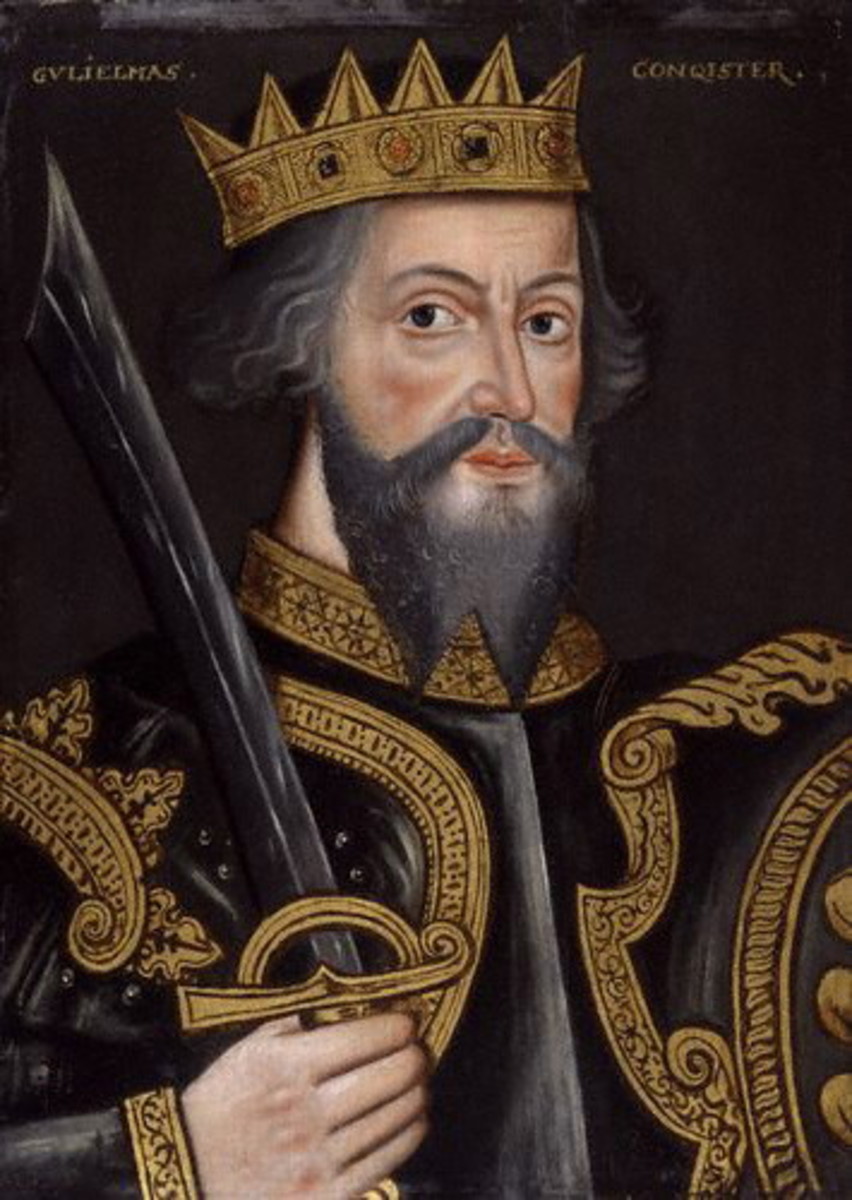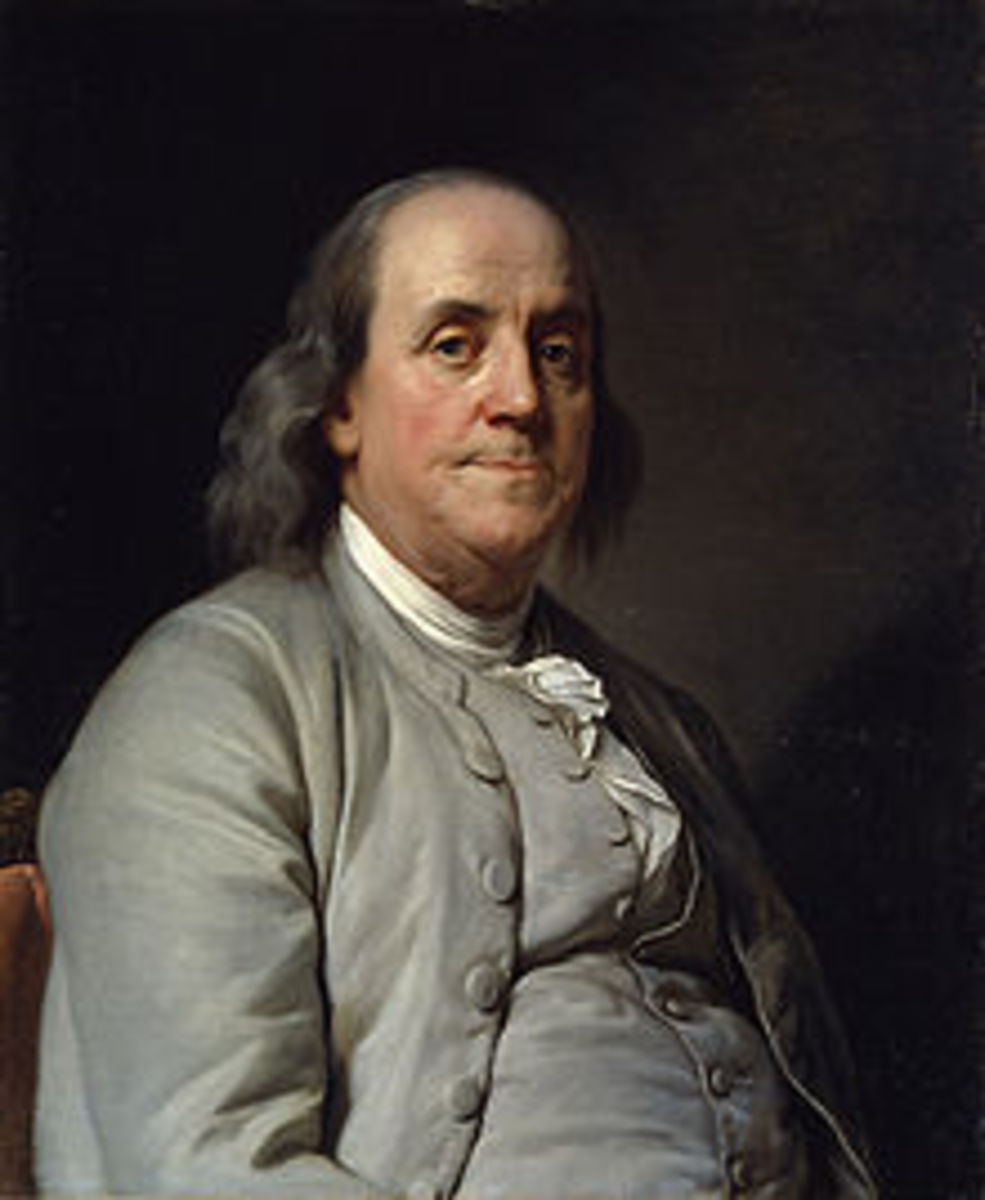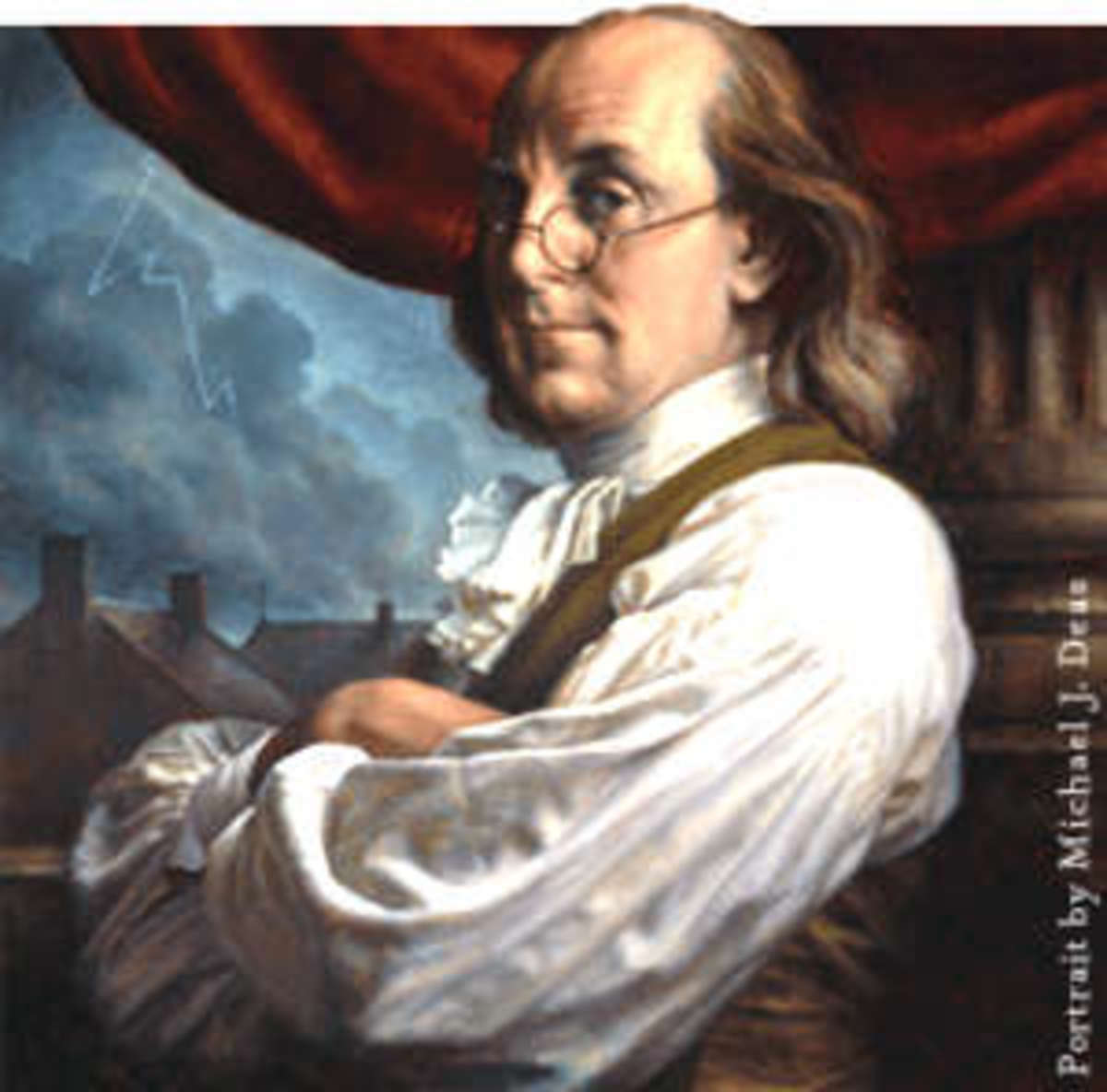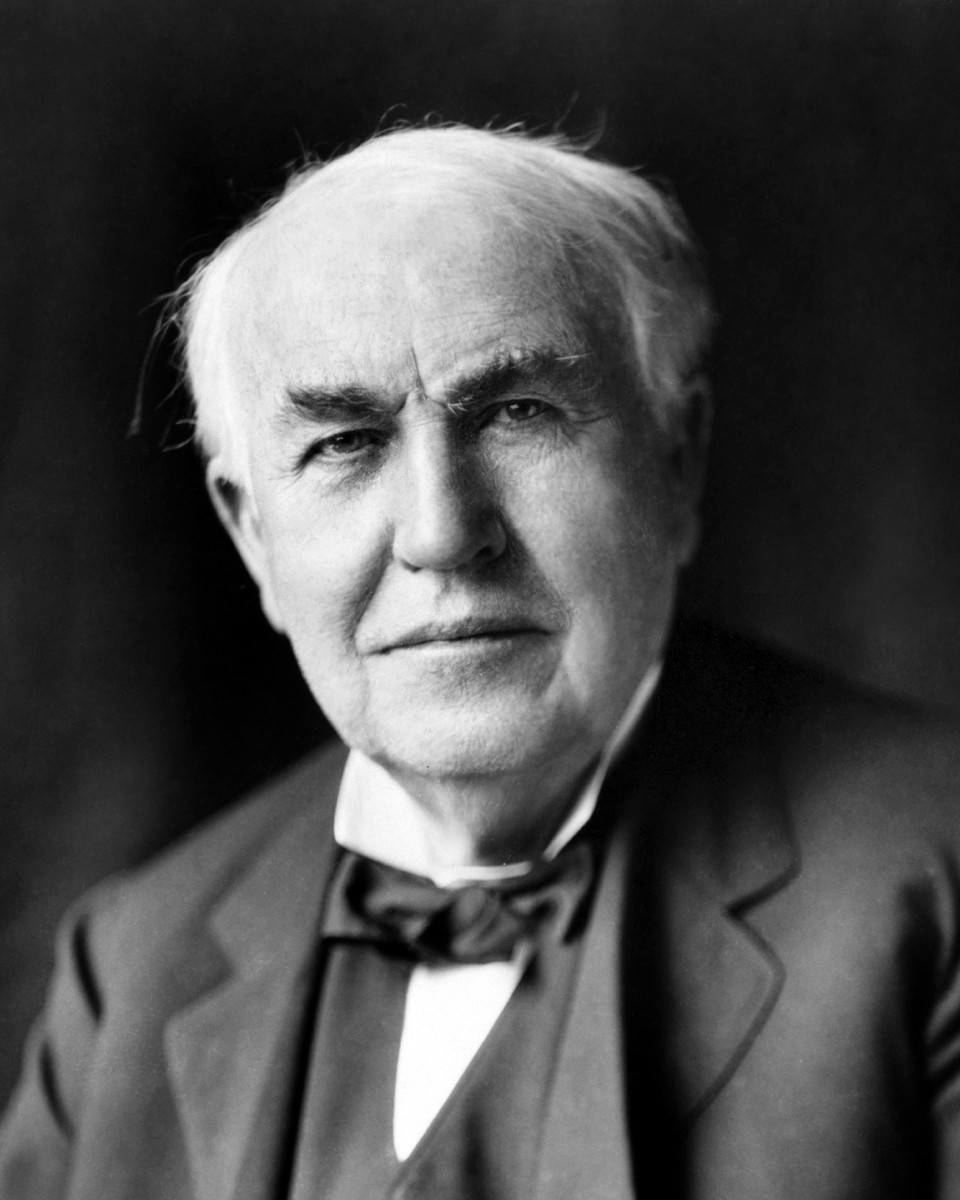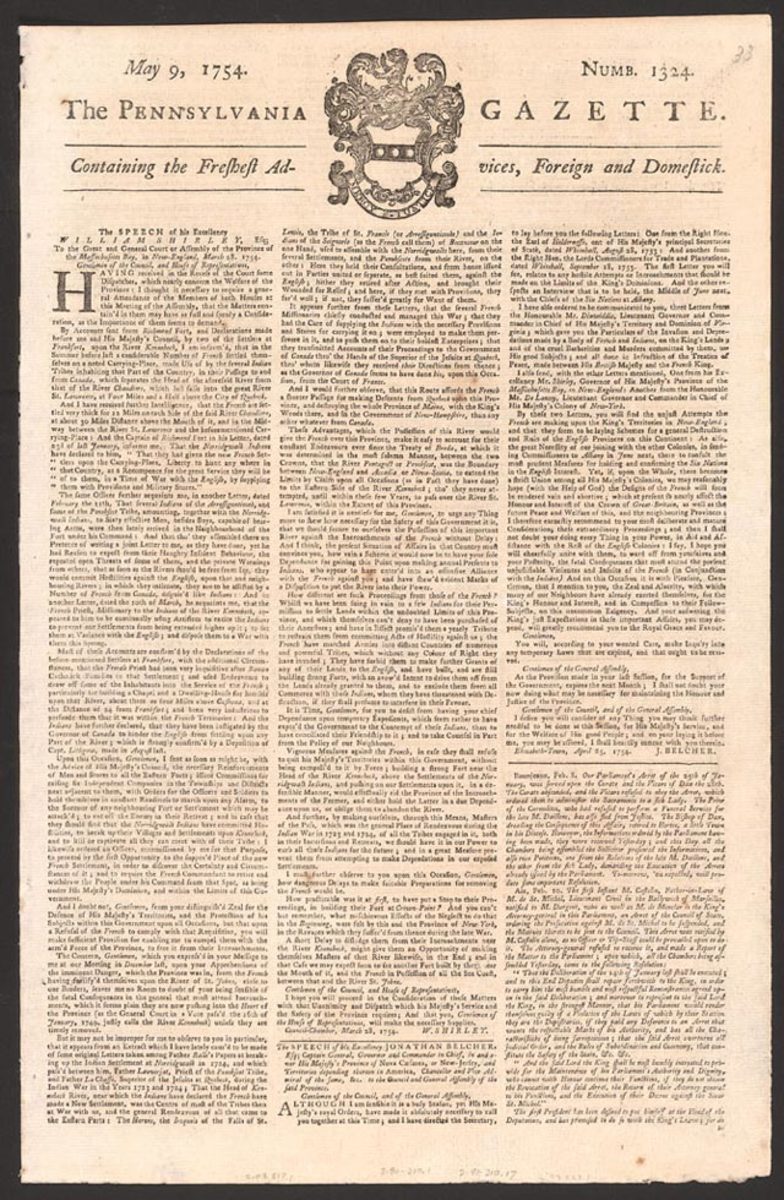The Greatest People in History and What We Can Learn from Them - Benjamin Franklin
One of the Greatest People in History - Benjamin Franklin
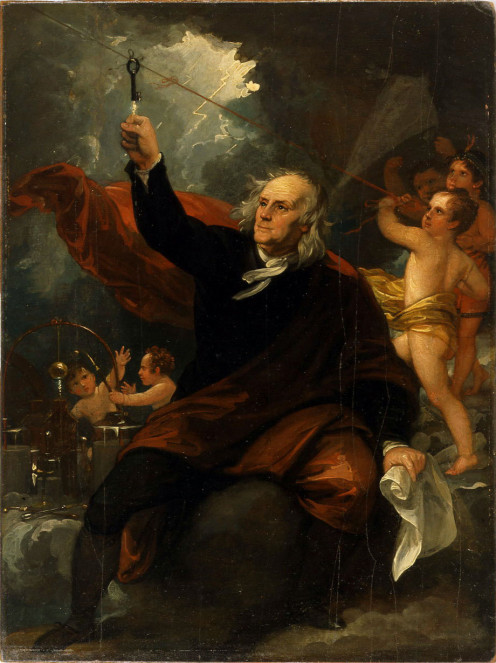
Benjamin Franklin Enjoying the Adulation of the French at Court
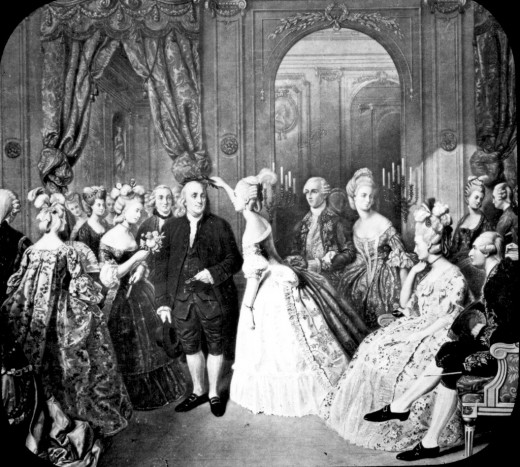
The Greatest People in History and What We Can Learn from Them - Benjamin Franklin
Benjamin Franklin was born on January 17, 1706 in the city of Boston, which was then the largest city in the colonies. It had 10,000 residents and one hundred streets and alleys, most of which were still unnamed. Franklin was born on one of the streets that did have a name - Milk Street. From the very beginning, great things were expected of Benjamin Franklin by his father because in an interesting turn of events, he was the youngest son of a youngest son of a youngest son of a youngest son all the way back to his great grandfather. What made it even more special to his father was the fact that Benjamin was the youngest in a family of 15, ten of which were boys.
Quick Learner
Benjamin's father became even more convinced his last son was special when the child taught himself to read almost as soon as he could talk. His father, whose name was Josiah, was what people called a "leather apron man" which means he worked at a trade. Josiah's trade was soap and candle making. He trained three of Benjamin's brothers to continue in that trade; one other brother was a blacksmith; and still another was a printer. The remaining four brothers died young - one ran away to sea and was drowned and another drowned at home in his father's vat of soapsuds when he was only 16 months old.
The Soap and Candle Business
When Benjamin was 10, his father Josiah Franklin realized he no longer had enough funds to pay for his schooling and so he withdrew Benjamin from school and put him to work in his soap and candle business instead. Benjamin Franklin hated the soap and candle factory. He found the fumes from the lye and grease unbearable. So his father decided they would go on a tour of Boston's different shops and Benjamin could choose his own trade. They visited cutlers who made knives, coopers making barrels, hatters who made hats, bricklayers, cabinetmakers, roofers, and brass makers. Benjamin wasn't drawn to any of the trades but he did pick up a lot of useful tips on how to do fix-it chores at home.
During these early years when Benjamin and his father were trying to settle on his future, the boy spent his free time reading and conducting experiments. One time he invented paddles for his feet and hands so he could swim faster. Swimming was one of his favorite pastimes. He also invented a method by which a kite could carry him across the river to the other side. He read every book he could find, but books were scarce in Boston. When he ran out, he read the volumes of the local minister's sermons.
Statue of Benjamin Franklin in Washington Square: San Francisco
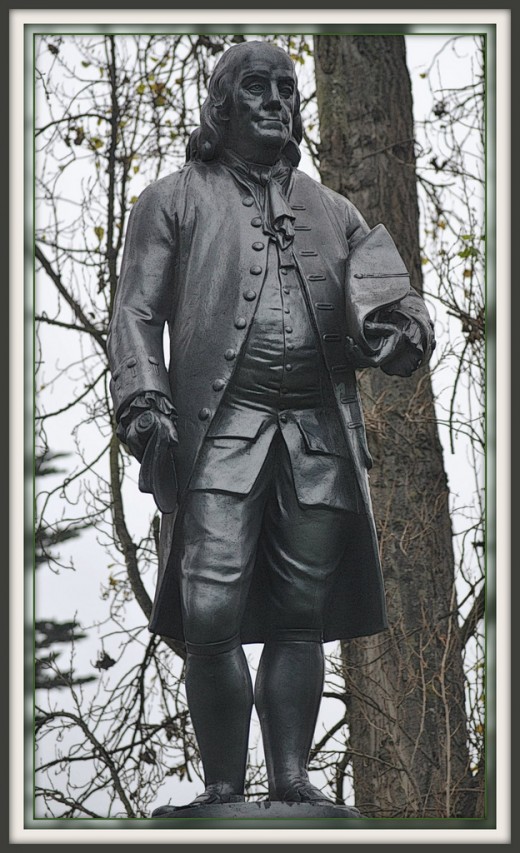
The Unwilling Apprentice
Benjamin's father finally decided that the best course of action would be for Benjamin to become his older brother, James' apprentice in his printing business and just like the soap and candle business, he didn't enjoy it. This wasn't because he didn't like printing work in itself. It was the fact that his brother was strict and worked Benjamin for 14 hours a day. Any errors were punished with boxed ears, Benjamin was not about to be pushed around and he set about preparing himself for greater things.
Self-Education
As Benjamin was only allowed limited responsibility in the printing business, he grew bored and his hunger for learning soon led him to save up his lunch money and buy books to quench his thirst for knowledge, which he sat and read during his lunch breaks. His favorites were Pilgrim's Progress, by John Bunyon, Plutarch's Lives, Robinson Crusoe, by Daniel Defoe, and the works of Cotton Mather. From this, he began to write and being highly imaginative, he developed a clever system for improving his writing. He would read an essay, then turn the essay into poetry. A few weeks later he would write the poetry back into prose and by doing so, Benjamin was improving his vocabulary and his style.
Secret Letters
While working for his brother in his printing business, Benjamin began writing secret letters to his brother's paper under the name 'silence dogood.' Silence dogood was a widow who would write about social and political trends such as educating women. These letters became a big hit with the paper's readers but when Benjamin's brother found out that it was really him doing the writing, he refused to print anymore.
Finally, when he was 17, Benjamin had had enough of his brother's tyranny. He snuck away and boarded a ship to New York, where he hoped to get work in another printing shop. When he found there was no work in New York, he headed for Philadelphia, the city that would be his home for the rest of his life.
A Man on a Mission
In Philadelphia, Benjamin found a new job as an assistant in another print shop and found some lodgings, all in short time. His roots of greatness had taken and he was on his way to a life of adulation and admiration from the masses.Franklin did well in the print shop and he soon made many friends in Philadelphia. He formed a club of other young men who liked to read and discuss ideas and called it The Leather Apron Club.
Thirteen Virtues
Franklin also made a chart of thirteen virtues he wanted to practice and develop. Every week he checked the list to see how he'd progressed. The list included: temperance, silence, order, resolution, frugality, industry, sincerity, justice, moderation, cleanliness, tranquility, chastity, and humility. Every time he thought he had failed in a category, he put a black spot in the chart. He always considered himself full of faults but he did write once that he "had the satisfaction of seeing them diminish."
The Ever Productive Benjamin Franklin
Not only did Benjamin Franklin end up owning and running his own printing shop which he seemed to work day and night on. People of Philadelphia would comment on how the light was on in his shop when they went to bed, and it was on again when they arose in the morning. He also showed that he wasn't afraid of manual labor and would often be seen pushing a paper-laden wheel-barrow through the streets of Philadelphia. Soon he was the chief printer for the Pennsylvania government. He also bought a newspaper called the Philadelphia Gazette and filled it with news of politics, fires, accidents, and his own eloquent essays. Then in 1732, when he was 26, he ran an advertisement in his paper announcing a new almanac - Poor Richard's Almanac, written by Richard Saunders. He told the readers that Saunders was an astrologer who had written the almanac because his wife had become angry over his idleness. But like Silence Dogood ten years before, Richard Saunders was only an alias for the anything-but-idle Benjamin Franklin.
Benjamin Franklin's Famous Experiment
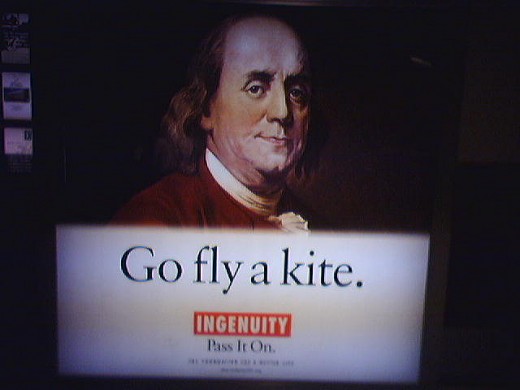
Benjamin's Writings and Inventions
He also published an annual almanac which was chock full of useful information and words of wisdom by Franklin himself. There were weather forecasts, a schedule of tides and holidays, dates for the full moon, advice on what to plant and when, housekeeping and repair tips, jokes, and endless proverbs written by Franklin that have become a famous part of American folklore. Although he ran a print shop, Benjamin still found time for his inventions and one of his most famous inventions and one which is still used today was his 'Franklin Stove' which could be inserted into a fireplace to increase the spread of warmth, as he had noticed that traditional fireplaces were inefficient and wasted a lot of heat.
His ingenuity was unlimited, it seemed as his inventions covered a whole spectrum of areas. Working with the Philadelphia fire department, he was able to find a new way of lighting the streets of Philadelphia as well as create a system for collecting and disposing of the city's garbage. As a result of these advances, Philadelphia became the most advanced city in the colonies.
His Famous Experiment
But Franklin's most important idea and experiment, and the one for which he's famous, was his theory that lightning was really electricity. He was 46 when he came up with this idea and no one believed him. They all thought electricity was a mystery of the heavens that could and never would be solved. So Franklin wrote to scientists in Europe and suggested they put a sentry box on top of a high tower. On the box they should put a metal rod and in the box they should stand during a storm. If lightning was attracted to the rod, which Franklin knew was a conductor of electricity, then lightning must be electricity. The only reason Franklin didn't try this experiment himself was that there were no hills high enough in Philadelphia. Three scientists in Europe agreed to try Franklin's experiment and they all proved his theory. Meanwhile however, Franklin had come up with a way to prove his idea himself. He attached a metal tip to a kite and then tied a metal key to the string of the kite, near his hand. In the middle of a storm, he raised his kite in the air and felt an electric shock come through the key. To Franklin's amazement, his discovery of electricity in lightning made him world famous. Overnight, he was the most celebrated man in America. The King of France sent him congratulations; the Royal Society of England presented him with a medal; universities gave him honors, and people began calling him "Dr. Franklin." Because Franklin's main motivation in life was to be useful, he searched for a way to translate his discovery into something with a practical purpose. He found it in the lightning rod - a pointed iron rod on the roof of a house or barn that attracts lightning and leads it through a wire into the ground, thus protecting the house from being struck. To his own lightning rod, Franklin rigged a contraption that rang a bell in the house whenever lightning hit.
Lesson: It seems to me that the lesson here is clearly obvious. If you aren't satisfied with where you are and what you have in life, change it. It is as simple as that. Back in Benjamin Franklin's day, things were much harder and life was cruel to those with no ambition or imagination. There was also no Internet to search for and learn all the information one needed to learn in order to become successful in their chosen field. These days things are much easier and if you have access to the Internet on a daily basis, yet still find that you are lost and lacking in knowledge in the area that you wish to excel in, you are clearly being lazy or procrastinating. You don't have to become a Benjamin Franklin or an Einstein. Just pull yourself out of the mediocrity that you may be in right now. Are you working in a job you don't like? Fine, in your free time, study for the career that you really wish to pursue and practice and improve daily in that area until you feel ready to set off and leave mediocrity behind. Just as Benjamin Franklin did, so must you rely solely on yourself to get to where you want to go so work out where it is you are headed and adjust your course accordingly.
Quotes
"Time is money."
"He that raises a large family does, indeed, while he lives to observe them, stand a broader mark for sorrow; but then he stands a broader mark for pleasure too."
"We must, indeed, all hang together or, most assuredly, we shall all hang separately."
Franklin Court in the National Historical Park of Philadelphia
Franklin Court


